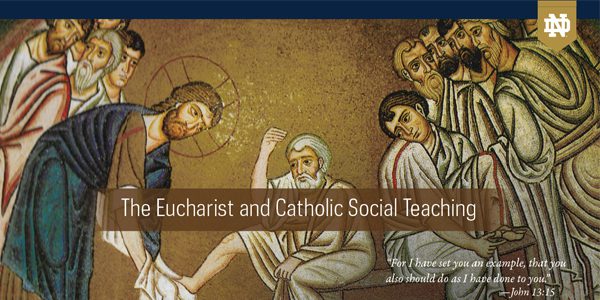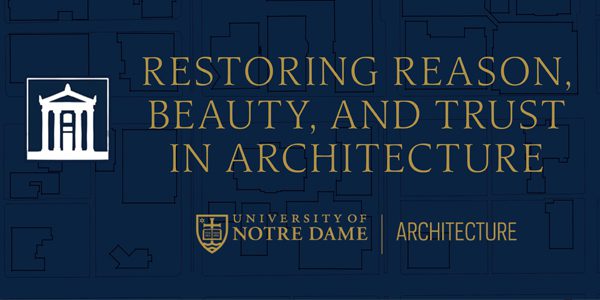Consider This! Simplifying the COVID-19 conversation – COVID-19 Testing
Subscribe to the ThinkND podcast on Apple, Spotify, or Google.
Featured Speakers:
- Heidi Beidinger-Burnett, Director, Eck Institute for Global Health Masters Program; Associate Professor of the Practice, Department of Biological Sciences, University of Notre Dame; President of the St. Joseph County Board of Health
- Mary Ann McDowell, PhD, Associate Professor of Biological Sciences and Member of the Eck Institute for Global Health, University of Notre Dame
- Liz Rulli, Associate Vice President for Research, University of Notre Dame
- Paul Hergenrother, Kenneth L. Rinehart Jr. Endowed Chair in Natural Products Chemistry and Professor of Chemistry, University of Notre Dame
This week, hosts Heidi Beidinger-Burnett, Director, Eck Institute for Global Health and Mary Ann McDowell, Associate Professor of Biological Sciences, were joined by guests Liz Rulli, Associate Vice President for Research at Notre Dame and Paul Hergenrother ’94, Kenneth L. Rinehart Jr. Endowed Chair in Natural Products Chemistry and Professor of Chemistry. These guests were brought onto the show to discuss testing strategies for Covid-19.
After guests were introduced, the “Rumor Has It” portion began. The rumor was that pooled testing would occur in the spring, and that if pooled tests were positive, all people in the pool would be tested again. Pooled testing means that samples from many people would be pooled together. If all were negative, they would be discharged. While this is more cost effective, the rumor is false; Notre Dame will not be doing pooled testing.
Hergenrother then described the astounding testing that the University of Illinois has accomplished throughout the semester. They have completed close to 900,000 tests, and they test every undergraduate student twice a week. At Notre Dame, 73,000 surveillance tests were done throughout the semester.
The experts then discussed the different approaches that different schools take to test their students. At the University of Michigan, tests were scarce. At Duke University, many more people were tested, and many of those who tested positive were asymptomatic, which could mean that a lack of surveillance testing at other universities could be a risk factor.
In order to incentivize University of Illinois students to get tested, they use an app which was developed by computer scientists and app developers at the university. It works in such a way that the students at the University of Illinois can only enter a building if their app states that they have tested negative that week. Rulli stated that she hopes the University of Notre Dame will adopt a similar system in the spring.
Next, the experts talked about what they have learned throughout this whole process. Rulli said that the first lesson she learned was that testing, and testing frequently, is absolutely essential in preventing the spread of Covid-19. She also stated that communication between administration and students regarding testing and how to stay safe is key. Finally, she said that “What the university accomplished when people from all different parts—from research and administration—all get together with a common goal is really amazing.” Hergenrother echoed her sentiment regarding the importance of testing frequently. He also added that it is vital to persuasively compel students to isolate when they receive a positive test. Both experts stated they had trouble with that in the beginning of the semester.
In the portion of the event in which the conversation is opened up to questions from the audience, one viewer asked how Rulli and Hergenrother measure success in their testing, as it is a system that can never truly be 100% perfect. Hergenrother responded that some of the key metrics are the extent to which community spread is prevented, the extent to which hospitalizations and extreme forms of the virus are avoided, and the extent to which outbreaks are avoided in the early stages. Another viewer asked whether data would be used for research purposes, to which both experts answered yes, it is.
- 13:00—Notre Dame will not be doing pooled testing of Covid samples.
- 15:10—At the University of Illinois, students get tested twice a week.
- 23:31—The University of Illinois will be helping the surrounding communities with Covid testing, and this testing takes place in labs on the backs of trucks.
- 39:30—False positives are one of the largest challenges in Covid testing.
- 48:00—Success of testing systems are measured by the extent to which community spread is prevented, the extent to which hospitalizations and extreme forms of the virus are avoided, and the extent to which outbreaks are avoided in the early stages.
- “On campus we have done close to 900,00 tests. All undergrads get tested twice a week.” (Paul Hergenrother, 15:10)
- “Our origin story [regarding testing] starts with Paul and the University of Illinois, and we wouldn’t be able to do any of this without their help.” (Liz Rulli, 31:46)
- “False positives were the real enemy going into this.” (Paul Hergenrother, 37:40)
- “What the university accomplished when people from all different parts—from research and administration—all get together with a common goal is really amazing.” (Liz Rulli, 40:00)
Related Content
Eucharistic Abundance and Social Regeneration
In 2022, the United States Conference of Catholic Bishops (USCCB) announced that the Church in this country would undertake a Eucharistic Revival, as a way to bolster Catholics’...
View EventHow Cities Speak To Us
Professor Emily Talen joins the School of Architecture to share her work at The Urbanism Lab and its focal point at the University of Chicago for the study of the built...
View EventThe Black National Anthem & Parent’s Signing Off On Children Reading Black Books
In this week’s episode, Isaiah and Tykiera talk about some tweets about Black people that took Twitter by storm. They also talk about The Black National Anthem, Lift Every Voice...
watch video


